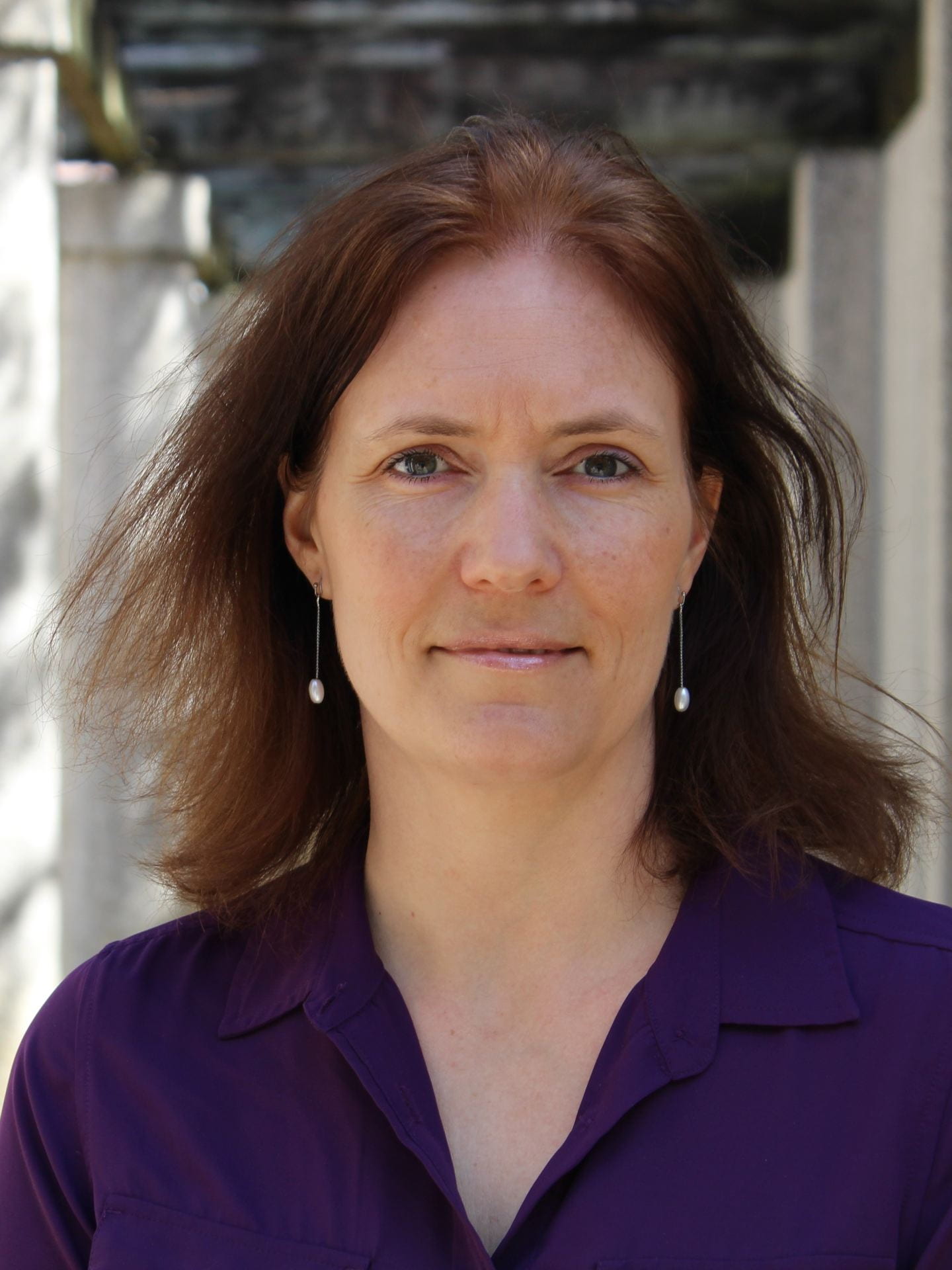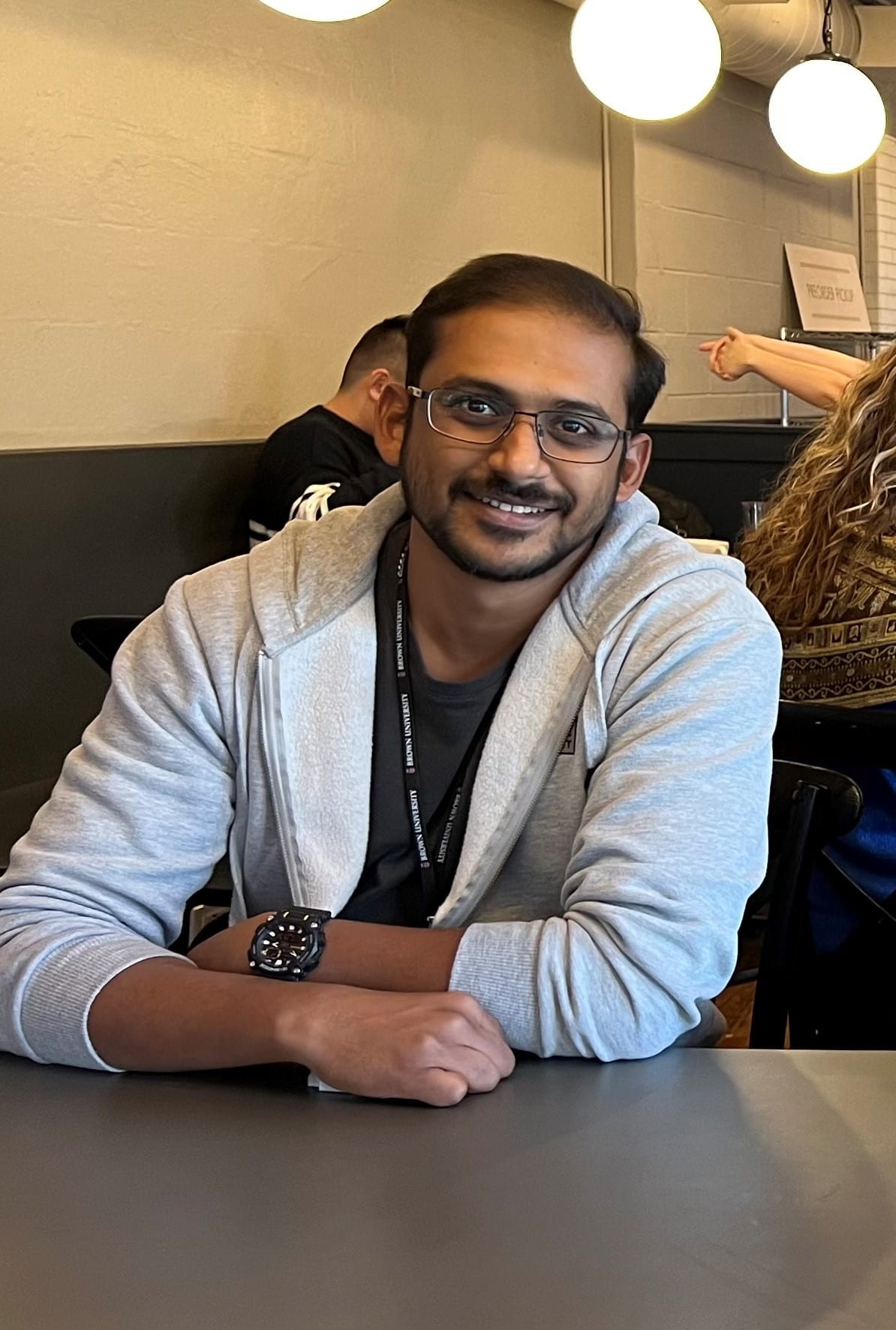about us
Meet the Mani Lab
Our team is passionate about their research dedicated to determining the underlying molecular mechanisms of cancer metastasis and improving patients’ lives.
Experts in the field of cancer biology
Major areas of research in the Mani lab include:
- Adaptive immunity in EMT and metastasis
- Genomic and epigenomic analysis of cellular plasticity during metastasis
- Identification, characterization, and development of small molecules for treating therapy resistance and metastasis
- Role of hybrid EMT in tumor metastasis

Sendurai A. Mani, Ph.D.
| Professor of Pathology and Laboratory Medicine, Brown University |
| Associate Director of Translational Oncology at Brown University Legorreta Cancer Center |
| mani@brown.edu |
Sendurai A. Mani is a Professor in the Department of Pathology and Laboratory Medicine at Brown University. He is also the Associate Director of Translational Oncology at Brown University Legorreta Cancer Center. Dr. Mani earned a Ph.D. from The Indian Institute of Science, Bangalore, India and then did postdoctoral work with Dr. Robert A. Weinberg at the Whitehead Institute/Massachusetts Institute of Technology (MIT), Cambridge, Massachusetts, USA. He then joined the University of Texas MD Anderson Cancer Center, Houston, Texas as an Assistant Professor in December of 2007 and has been promoted to Associate Professor with tenure in 2013. In late 2022, Dr. Mani joined Brown University Legorreta Cancer Center as a professor and Associate Director of Translational Oncology. Dr. Mani has received numerous prizes and awards for his research, including a Jimmy V foundation’s V-Scholar Award and The American Cancer Society Research Scholar award. Dr. Mani’s original finding demonstrating the cancer cells acquire stem cell properties by activating latent embryonic epithelial-mesenchymal transition (EMT) program provided the foundation and explanation for the presence of plasticity within the tumor as well as the development of resistance to various treatments.

Petra den Hollander, Ph.D.
| Scientific Program Director and Assistant Professor at the Department of Pathology and Laboratory Medicine, Brown University |
| petra_den_hollander@brown.edu |
Petra den Hollander is the Scientific Program Director for the Mani lab and an Assistant Professor in the department of Pathology and Laboratory Medicine. Her research focus is on understanding the aggressiveness of triple-negative breast cancers, and to identify targets and agents to overcome resistance mechanisms. During her graduate training she worked on the identification of protein complexes that were important in breast cancer growth and estrogen hypersensitivity. For her postdoctoral training Dr. den Hollander collaborated with the Bioinformatics Research Lab, and the Genome Sequencing Center at Baylor College of Medicine, in the development of a new high-throughput sequencing technique to aid in the discovery of genetic alterations in cancer. In the Department of Clinical Cancer Prevention at MD Anderson, Dr. den Hollander used preclinical animal models for the development of new strategies in triple-negative breast cancer prevention and treatment. Her current research is focused on identifying the underlying mechanisms of the induction and maintenance of cancer stem cells and their resistance mechanisms using single cell ‘omics’ techniques identifying targets to successfully treat cancers and prevent metastatic progression.

Divya Murthy, Ph.D.
| Assistant Professor at the Department of Pathology and Laboratory Medicine, Brown University |
| divya_murthy@brown.edu |
Divya Murthy is an Assistant Professor in the Department of Pathology and Laboratory Medicine. Dr. Murthy’s research centers on metabolic reprogramming in pancreatic cancer and its tumor microenvironment, focusing on the mechanisms driving metastasis and therapy resistance. She earned her Ph.D. from CSIR-Institute of Genomics and Integrative Biology, New Delhi, India, where she made significant strides in identifying an unconventional role of autophagic machinery in organelle transport within skin cells. During her postdoctoral work at the University of Nebraska Medical Center, Dr. Murthy investigated the metabolic crosstalk between pancreatic cancer cells and the tumor microenvironment, specifically targeting interactions with cancer-associated fibroblasts and macrophages to uncover metabolic vulnerabilities that could inform new therapeutic approaches. She continued her work on cancer metabolism at Baylor College of Medicine, where she discovered a novel metabolic role for the stem cell marker CD24 in triple-negative breast cancer (TNBC), opening avenues for new TNBC treatment strategies. In the Mani Lab, Dr. Murthy continues to expand her research, delving into the roles of epithelial-mesenchymal transition (EMT) and cancer stem cells in pancreatic cancer metastasis and development of therapy resistance. Her work aims to elucidate key metabolic and cellular processes as potential therapeutic targets to improve the current standard of care therapies for pancreatic cancer patients.

Nick A. Kuburich, Ph.D.
|
Research Associate, Brown University
|
| kuburich@brown.edu |
Nick is from Northwest Arkansas. He graduated with Honors from Arkansas Tech University, where he studied biology. Nick received his Ph.D. in Microbiology, Molecular Genetics, and Cell Biology from Oklahoma State University, where he worked in Dr. Hadwiger’s lab. He studied the cellular signaling of the model organism Dictyostelium. His research focused on characterizing post-translational modifications of a phosphodiesterase and characterizing the functionality and regulation of an atypical MAPK.
At M.D. Anderson, Nick was a postdoctoral fellow in Dr. Mani’s lab in the Department of Translational Molecular Pathology and an NCI T32 research fellow in the Department of Cancer Biology. Here, he worked on cancer biology and metastasis, specifically in characterizing the function of the cytoskeleton’s intermediate filaments.
Nick has continued his research with Dr. Mani at Brown University, where he primarily works on the characterization of the mesenchymal intermediate vimentin, a protein that is both a marker and active enforcer of the mesenchymal state. Vimentin is tightly regulated by phosphorylation in the cell, controlling its assembly and disassembly for its functions in motility and structure in the cell. However, stabilizing vimentin phosphorylation leads to deleterious consequences for specific cells that have initiated epithelial-to-mesenchymal transition. Through research in the Mani lab and collaborations, Nick has shown that vimentin can be stabilized using small molecules, leading to the inhibition of carcinoma cells with mesenchymal properties. His end goal is to develop targeted therapies that will be given with standard chemotherapies to treat TNBC. Nick’s hobbies are reading, playing video games, watching anime, and cooking.

Patrick Schupp, PhD.
|
Senior Data Scientist, Brown University
|
| patrick_schupp@brown.edu |
Patrick serves as a Senior Data Scientist in the Mani Lab. He has obtained his B.S. of Microbiology from the University of Rochester and subsequently spent time in the lab of Dr. Daniel Bauer at Boston Children’s Hospital. There, he mapped the effect of the BCL11A enhancer on fetal hemoglobin production and contextualized his findings to gene-editing therapies of beta-hemoglobinopathies.
Upon moving to the West Coast, he earned his Ph.D. at the University of California, San Francisco as a NIH T32 Neurosurgery Fellow in the lab of Dr. Michael Oldham. He worked on multi-omic approaches to study brain tumor clonality and actionable changes in the tumor microenvironment. He developed novel single-cell NGS and statistical methods to profile cancer from the level of individual cellular pathways active in cancer subclones to the shared phenotypes of cancer cells and their microenvironment in thousands of patients.
Next, Patrick returned to the Boston area as a Senior Scientist at Vesigen Therapeutics, working on optimizing their proprietary gene-editing delivery platform through machine learning approaches. He also generated and analyzed transcriptomics and genomics data to aid in target selection and interpretation of therapy responses. Patrick is excited to continue his cancer research at Brown University where he is working on integrative multi-omics to study EMT transitions to better understand cancer stem cell heterogeneity and druggability.
He originally hails from Germany by way of the South Shore of Massachusetts. Apart from thinking about biological processes, he enjoys working on his native plant garden, birding, and spending time with his cats (who also enjoy birding, albeit with different motivations).

Thiru Sabapathy, Ph.D.
|
Postdoctoral Research Associate, Brown University
|
| thiruvarutchelvan_sabapathy@brown.edu |
Thiru Sabapathy received his PhD in receptor and membrane biology from Curtin University, Australia, where he investigated the molecular events involved in the interaction between insulin and its receptor, and how diet-related changes in the lipid environment of plasma membrane affects this interaction. He then performed his postdoctoral research on antimicrobial peptides’ selectivity for cancer cells in exerting their cytotoxic effects, using a range of biophysical approaches. Thiru joined the Mani Lab in 2022 as a postdoctoral fellow investigating the synergistic role of the combination of p38 MAPK inhibitors and chemotherapeutic drugs on primary tumor growth reduction and metastasis prevention in triple-negative breast cancer (TNBC). His current research focuses on using preclinical mouse models to evaluate various combination therapies
including immune checkpoint blockade therapy for TNBC.

Qian (Winnie) Yu, Ph.D.
|
Postdoctoral Research Associate, Brown University
|
| qian_yu@brown.edu |
Qian Yu, Ph.D., is originally from China and earned her doctorate in Computational Biology and Medical Sciences from the University of Tokyo. Her doctoral research focused on developing mathematical models to optimize treatment strategies for EGFR-mutant non-small cell lung cancer (NSCLC). Through this work, she demonstrated that cellular interactions within tumors play a critical role in therapy resistance, offering valuable insights into the optimal timing and strategy for targeted treatments.
In addition to her mathematical modeling work, Qian has conducted research in spatial transcriptomics to explore the relationship between tumor microenvironment heterogeneity and therapy response differences. She developed a novel spatial transcriptomics co-profiling method to map immune cells within the tumor microenvironment, providing deeper insights into immune interactions in cancer.
At Brown University, Qian’s research focuses on pancreatic cancer progression and therapy resistance. By integrating spatial omics and computational modeling, she aims to uncover new therapeutic targets and elucidate the mechanisms driving treatment resistance.
Outside of the lab, Qian enjoys hiking, reading, traveling, and exploring diverse cultural experiences.
including immune checkpoint blockade therapy for TNBC.

Henri Blouin
|
Administrative Coordinator, Brown University
|
| henri_blouin@brown.edu |
Henri is the administrative Coordinator for the Mani lab. Please reach out to him for any assistance regarding admin-related work or questions in the Mani lab!

Breanna Demestichas
|
Graduate Student (Ph.D.), Brown University
|
| breanna_demestichas@brown.edu |
Breanna is a graduate student in the Mani lab. She studied at Binghamton University for her BS in Cell/Molecular Biology and BA in Mathematics. As an undergraduate, her research focused on applications of bioorthogonal chemistry in the synthesis of stable and homogeneous antibody-drug conjugates. She then worked in the lab of Dr. Tobias Janowitz at Cold Spring Harbor Laboratory, focusing on the systemic effects of cancer and specifically exploring the endocrinological effects impacting immunotherapy efficacy in pre-clinical models. In the Mani lab, she looks forward to exploring the factors that influence immune system dysregulation and mechanisms of immune evasion during metastasis.

Joanna Joyce Maddela
|
Graduate Student, Brown University
|
| joanna_joyce_maddela@brown.edu |
Joanna is a Molecular Biology, Cellular Biology, and Biochemistry (MCB) Ph.D. student in the Mani lab since Spring 2023. She studied at California State University, Northridge to get her BS in Cell and Molecular Biology and Biotechnology. As an NIH RISE/MARC Fellow, she investigated factors that may be regulating intratumoral heterogeneity in triple negative breast cancer. In the Mani lab, she is exploring the mechanisms governing breast cancer stem cell fate. Outside the lab, she loves to play video games, crochet, cook, bake, watch anime, listening to K-pop, and go on hikes!

Andrew Karam
|
Graduate Student, Brown University
|
| andrew_karam@brown.edu |

Diana Ferreyra Faustino
|
Graduate Student, Brown University
|
| diana_ferreyra_faustino@brown.edu |
Diana is a Pathobiology PhD student in the Mani Lab. She studied at CUNY BMCC for her AS and transfered to SUNY Binghamton University for her BS in Molecular Biology. As an LSAMP and CSTEP undergraduate her research focused on neurobiology, specifically on behavioral biology at different development states during opioid addiction treatment. She then worked at Merck Sharp & Dohme, where she focused on the pharmacokinetics of membrane transport proteins and small molecules. She helped in assay development, automation and exploratory research. In the Mani Lab, she looks forward to exploring the intricacies of pancreatic cancer and how stemness influences the microenvironment. Diana is originally from Peru and moved to the United Stated in 2016. She loves traveling, food, anime/movies, gardening and hiking.

Marygrace Trousdell
|
Graduate Student, Brown University
|
| marygrace_trousdell@brown.edu |
Marygrace Cajigan Trousdell (better known as MGT) is a proud Long Island native who grew up enjoying its beautiful coastlines. She completed her undergraduate degrees in Mathematics and Biology at the University of Rhode Island, where she fell in love with interdisciplinary research.
After undergrad, she joined Cold Spring Harbor Laboratory as a bioinformatician, where she had the good fortune of being mentored by Dr. Camila dos Santos. Over the next five years, MGT led and contributed to studies on the genetic and epigenetic regulation of normal mammary gland development and breast cancer, tailoring pipelines for bulk and single-cell RNA-seq, ATAC-seq, ChIP-seq, and CUT&RUN data across diverse human and mouse samples—including tumors, normal tissues, organoids, and cell lines.
Currently, MGT is a PhD student at Brown University’s Center for Computational Molecular Biology, where she remains fascinated by the complexity of cancer. With privileged access to state-of-the-art spatial transcriptomic platforms in the Mani lab, her research aims to map underexplored hybrid cell states, characterizing how the tumor microenvironment functions as both a driver and consequence of pivotal reprogramming events in intractable cancers.
In her spare time, you can find MGT ruminating on her aphantasia at a local café, creating ocean-inspired resin art in her studio, or pestering her tabby and tuxedo felines, Carter & Quincy.

Ege Gungor Onal
|
MD/PhD Strudent, Brown University Warren Alpert Medical School
|
| ege_gungor_onal@brown.edu |
Ege Gungor Onal is an MD-PhD student at The Warren Alpert Medical School of Brown University. He earned his Bachelor of Science in Bioengineering with highest honors from the University of Illinois at Urbana-Champaign, where he was selected as one of nine graduates to receive the 2022 Knight of St. Patrick Award, the highest honor bestowed by the Grainger College of Engineering.
Following graduation, Ege worked in Dr. Robert Langer’s laboratory at MIT, contributing to the development of an mRNA-based nanotherapy for solid tumors. His work earned recognition with the 2024 Koch Institute at MIT Biomedical Image Award for his super-resolution confocal microscopy image of mRNA-lipid nanoparticle delivered glioblastoma cells.
During his undergraduate studies, Ege gained extensive research experience in Dr. Brian Cunningham’s laboratory, where he helped developed a portable photonic resonator absorption microscope for detecting microRNA cancer signatures from blood samples. He completed two consecutive Summer Undergraduate Research Fellowships (SURF) at the Mayo Clinic, where he worked with Dr. Venkatesh Bellamkonda and Dr. Michael Romero on both basic science and clinical research projects, earning distinction as an American Society of Nephrology Kidney STAR. During COVID-19, he published a research paper on the pandemic’s psychological and sociological impacts with sociologist Brian F. O’Neill, Ph.D. Ege’s bioengineering honors thesis in Dr. Andrew Smith’s laboratory focused on the metabolomic analysis of serum samples from castration-resistant prostate cancer patients. These efforts have culminated in multiple publications and conference presentations.
At Brown, Ege enjoys being involved in leadership and advocacy. He serves as Vice President of the Brown University Chapter of American Physician Scientist Association (APSA) and Co-President of student-led initiatives such as the Cancer Research Journal Club, Healer’s Art, and Regenerative Medicine Pre-Clinical Electives.
Ege’s research in the Mani laboratory centers on characterizing the balance of EMT and MET signatures that drive tumor cell plasticity during metastatic seeding and outgrowth, with the goal of developing next-generation therapeutics to combat cancer metastasis.

Justin Kim
|
Medical Student, Brown University Warren Alpert Medical School
|
| justin_kim1@brown.edu |
Justin is a medical student in the Mani lab. He completed his undergraduate education in biomedical informatics at Brown University as a member of the Program in Liberal Medical Education (PLME). During undergrad, Justin performed research in cancer genomics at the MD Anderson Cancer Center as a CPRIT-CURE scholar under the mentorships of Dr. Kadir Akdemir and Dr. Andy Futreal. He investigated the interplay between oncogenes with three-dimensional chromatin structure and extrachromosomal DNA. In the Mani Lab, Justin is interested in uncovering the evolutionary dynamics of cancer stem cells with respect to EMT, leveraging machine learning and single-cell sequencing methods. In his free-time, Justin enjoys watching soccer, reading and playing pickleball.

Claire Gould
|
Research Assistant, Brown University
|
| claire_gould@brown.edu |
Claire is a research assistant in the Mani Lab. She received her BA from the University of Colorado at Boulder, majoring in Evolutionary Biology and Molecular, Cellular, and Developmental Biology. As an undergraduate researcher, she investigated the evolution and development of the vertebrate head skeleton in the Medeiros Lab. After graduating, she worked for a year and a half at Biodesix, a lung cancer diagnostics company, where she helped in the ongoing development of a pan-cancer minimal residual disease assay, as well as the implementation of next-generation sequencing, droplet digital PCR, and single-cell capture platforms in biomarker development and discovery. In the Mani lab, she is excited to support the spatial and single-cell transcriptomics projects, as well as expand her experience in the cancer field.
Claire is originally from Denver, Colorado, and enjoys hiking, soccer, and being outdoors in her free time.

Matt Manwaring
|
Research Assistant, Brown University
|
| matthew_manwaring@brown.edu |
Matt is originally from New Hampshire and is a research assistant in the Mani Lab. He obtained a BS in Biochemistry from St. Lawrence University with a background in neuroscience and molecular biology. After graduating, Matt worked at FYR Diagnostics in Missoula, MT for almost two years. While at FYR Diagnostics Matt worked on the development and discovery of novel diagnostic approaches for multiple cancers and neurodegenerative disorders through a focus on liquid biopsies and targeting post translational modifications. Upon joining the Mani Lab he is looking forward to applying techniques aimed at the single cell level, expanding his own knowledge of cancer metastasis, and helping translate the work being done in the lab to a diagnostic or therapeutic application. Matt can be considered one of those pesky outdoor enthusiasts when not in the lab. Additionally, since cooking for himself, Matt has discovered a great appreciation for delicious food.

Alizee Ballarin
|
Research Assistant, Brown University
|
| alize_ballarin@brown.edu |
Alizee graduated in 2022 from Elon University with a Bachelor of Science in Biology. As an undergraduate researcher in Dr. Linda Niedziela’s lab, she investigated the acetylcholinesterase-inhibiting properties of Crassocephalum crepidioides and their effects on cognitive function in zebrafish.
After graduation, Alizee spent two years at TriSalus Life Sciences, an oncology-focused medical technology company, where she contributed to the processing and analysis of patient data from the PERIO clinical trials. These trials focused on patients with uveal melanoma and liver metastases, hepatocellular carcinoma, and pancreatic ductal adenocarcinoma (PDAC), evaluating the targeted delivery of a TLR9 agonist immunotherapy directly to the site of disease using a proprietary pressure-enabled infusion method. Additionally, Alizee contributed to advancing murine orthotopic liver metastasis and PDAC models to further investigate immunotherapy’s impact on the tumor microenvironment. In the Mani lab, she is excited to continue supporting oncology research and contributing to efforts to improve patient outcomes.
Originally from Warwick, Rhode Island, Alizee enjoys volunteering, figure skating, yoga, and arts and crafts in my free time!

Julia Kiselka
|
Masters Graduate Student, Brown University
|
| julia_kiselka@brown.edu |
Julia is an ScM student in the biotechnology program, matriculating in the fall of 2023, and anticipates graduating in spring 2025. Previously, Julia worked in the Lichtenberger laboratory at the University of Arizona. There, she utilized cyclic voltammetry and linear sweep voltammetry to characterize the electrochemical properties of novel dimetal catalysts for hydrogen fuel production. Her work centered on identifying the efficiency, speed, and lifetime of aromatically bridged [2Fe-2S] clusters for electrocatalytic hydrogen production. She subsequently transferred and graduated from the College of William & Mary with a B.S. in Neuroscience. In the Mani lab, Julia studies the interactions between intermediate filaments and their effects on triple-negative breast cancer characteristics.
Originally from Poland, Julia has lived in several countries around the world. In her free time, she enjoys traveling, reading, ice skating, and skiing.

Yumiko Imai
|
Undergraduate Student, Brown University
|
| yumiko_imai@brown.edu |
Yumiko Imai is a second-year undergraduate student from Haddam, Connecticut, concentrating in Cell and Molecular Biology. She is currently interested in AML and also immune cell infiltration in tumors. In the Mani Lab, Yumi hopes to learn all about the research process and study cancer stem cell properties. Outside of the lab and classroom, she spends her time volunteering at the Miriam Hospital, finding delicious restaurants in Providence, and hiking in the White Mountains.

Melanie Ho
|
Undergraduate Student, Brown University
|
| melanie_ho@brown.edu |
Melanie is an undergraduate in Brown University’s 8-year Program in Liberal Medical Education (PLME) studying Cell and Molecular Biology. Her research interests include immune cells within the tumor microenvironment and TNBC. In the Mani lab, she is currently studying the effects of combination therapy on macrophage polarization.
Melanie is from Los Angeles, California, and enjoys exploring beaches, taekwondo, and baking.

Lily Langbein
|
Undergraduate Student, Brown University
|
| lillian_langbein@brown.edu |
Lily is a third-year undergraduate student from West Palm Beach, FL, studying Biochemistry and Molecular Biology. Her interests focus on investigating the cellular differences between chemoresistant and parental Triple-Negative Breast Cancer cells, with the goal of translating these insights into clinical and therapeutic applications. Lily is looking forward to deepening her understanding of the mechanisms that drive therapy resistance in cancer cells, while also expanding my experience in scientific research. Outside of the lab, she enjoys dancing, playing the guitar, and exploring different parts of Rhode Island.

Joseph Zhu
|
Undergraduate Student, Brown University
|
| joseph_zhu@brown.edu |
Joseph is a first-year undergraduate student from Chicago, Illinois, planning to concentrate in Biochemistry and Molecular Biology. He is interested in exploring how immune cells can be leveraged to target metastasis. In the Mani Lab, he is excited to investigate the relationship between NK cells and EMT, study cancer stemness, and gain experience in the research process as a whole. Outside of the lab, he enjoys practicing the cello, playing badminton, and reading.
Our Approach
We combine state-of-the-art technologies focused on single-cell omics, such as single-cell DNA and RNA sequencing, spatial transcriptomics, multispectral imaging, life cell multi-color time-lapse imaging, and other platforms, with varied in vivo models with the intent to develop the next generation of therapeutics for these highly challenging cancers. At the center of our approach is the unique team of passionate and innovative researchers and collaborators in the Mani lab.
Our Mission
The Mani Lab investigates how cancer cells develop metastasis and resistance to treatments through invoking the epithelial-mesenchymal transition, cellular plasticity, and cheating the immune system. The Mani Lab identifies the underlying biology and develops treatment strategies for these highly aggressive tumors using preclinical models, patient tumor tissues, and genomic data from patient tumors.
Our Vision
Our vision is to create new cancer therapies through basic and translational science using preclinical models of cancer progression and metastasis.
Assembled and maintained by Nick Kuburich, Ph.D.